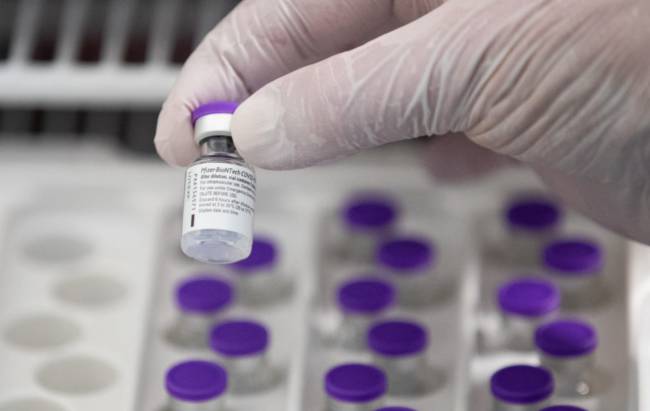The new guidance will speed the development of vaccines that protect against more contagious Coronavirus variants.
Vaccine developers will not have to conduct lengthy randomized controlled trials for vaccines adapted to protect against concerning Coronavirus variants, according to the Food and Drug Administration.
In a time when scientists are increasingly concerned about how variants could hinder or reverse progress against the virus, the recommendations, which call for small trials more like those for flu vaccines, would greatly speed up the review process.
A slate of new documents were released on Monday by the agency, including others discussing how antibody treatments and diagnostic tests might need to be retooled to cope with the virus variants.
They were the federal government’s most detailed acknowledgement that the variants pose a threat to current Coronavirus vaccines, treatments, and tests, and came weeks after acting commissioner Doctor said the agency was devising a plan to combat the variants.
Doctorsaid Monday that the emergence of virus variants raises new concerns about the performance of these products. We want the American people to know that we are using all the tools at our disposal to fight this pandemic, including pivoting as the virus adapts.
Many vaccine manufacturers with authorized vaccines or candidates in late-stage trials have already announced plans to modify their products to address vaccine variants. Moderna and Pfizer-BioNTech vaccines use mRNA technology that the companies claim can alter existing vaccines within six weeks, although testing and manufacturing would take longer.
In response to the B.1.351 virus variant that originated in South Africa and appears to dampen the effectiveness of the existing vaccines, Moderna has already started developing a new version of its vaccine that could be used as a booster shot.
A fast-spreading Coronavirus variant first observed in Britain has also undergone a worrying mutation that could make it harder to control with vaccines. Last week, the variant with the mutation was found in the United States.
However, the guidance did not appear to assume that new vaccines would be needed soon, or at all. In spite of the recent indications that certain variants, particularly B.1.351, make the currently authorized vaccines less effective, the vaccines still provide protection and greatly reduce the severity of the disease, preventing hospitalizations and deaths.
In response to a news briefing question on Monday afternoon, Doctordidn’t specify how many variants would have to spread before vaccines would need to be updated. “We need to anticipate this and prepare for it so that we can have something in our back pocket before the threshold is reached,” she said.
The updated Covid-19 vaccine is not required to undergo a randomized clinical trial that compares it to a placebo, the agency said. There will still be some testing to do on a tweaked vaccine. Researchers will draw blood from a relatively small group of volunteers who have been given the adapted vaccine in trials proposed by the FDA. Scientists will then observe how many volunteers’ samples produce an immune response to the variants in the lab, and how large that response is. It will be considered acceptable if the vaccines produce an immune response that is similar to the one induced by the original vaccine.
In a news briefing, Doctor, the top vaccine regulator at the FDA, said the study would include several hundred people.
Additionally, volunteers will be closely monitored for side effects. Testing can be done in a single age group and extrapolated to other age groups, according to the agency.
Animal studies were also encouraged to support the case for modified vaccines if immune response studies were ambiguous.
It acknowledged that many questions remained unanswered, such as what types of data would trigger the need for an adapted vaccine and who would make that decision. Additionally, scientists had not yet determined the minimum level of antibodies needed to protect someone against the virus in a vaccinated person’s blood.
In a similar manner, some other vaccines are regularly updated. The influenza virus evolves rapidly from one year to the next, so vaccine developers must come up with new recipes every year.
Regulators said the new Covid-19 vaccine would be authorized under an amendment to the emergency authorization granted to the original vaccine.

